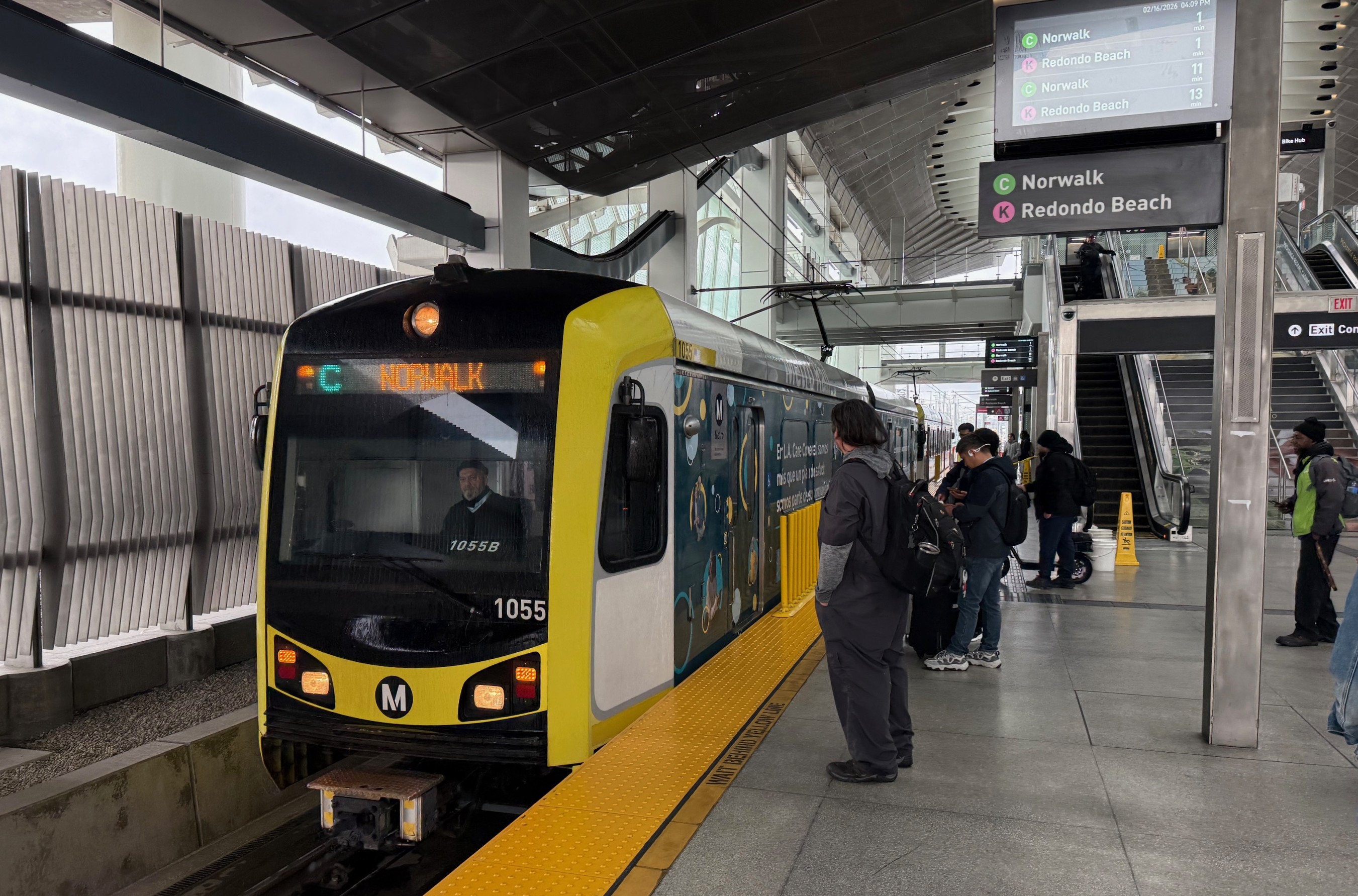 Supporting dense neighborhoods and rail lines were two things that the panel wants Metro to focus on. Photo: Salaam Allah Westcoast Transit Photography KING!/Flickr
Supporting dense neighborhoods and rail lines were two things that the panel wants Metro to focus on. Photo: Salaam Allah Westcoast Transit Photography KING!/FlickrSix months ago, Metro officials convened a Blue Ribbon Committee to provide a strategy for the transit agency to keep its operating budget under control as escalating costs, declining revenue and cuts in subsidies continue to play havoc with their projections. This Thursday, the Metro Board's Operations Committee (it's item #4) will vote on whether or not to send the recommendations to the Metro Board of Directors to guide Metro's policies moving forward.
So what does the Blue Ribbon Committee recommend? Basically, that Metro should focus on the service that people use the most. Daily and weekend service along major corridors and dense areas should be the primary focus, with a secondary focus on late night service. Owl service is put way on the back burner.
The committee also refers to rail as the future backbone of the transit system and encourages a greater level of connectivity between the bus system and the expanding rail system. More localized service is placed on the back burner as the committee urges Metro to focus on more frequent service every half-mile to a mile.
A lot of this might seen like common sense to Metro watchers, but the recommendations are sure to rankle the Bus Rider's Union and their supporters who will object to cuts to non-commuter hour trips and the emphasis on rail. Combined with a Long Range Plan that calls for a predictable schedule for fare increases, this outline is sort of a worst-case scenario for an organization focused on cheap and plentiful bus service. The BRU would argue that while Metro may have to tighten its organizational belt in the future, they should be cutting back on rail service not making it the backbone of the transit system,
There are also many suggestions that won't be controversial, such as ones to better coordinate with local municipal service and another to optimize use of the TAP system. If you have a chance, check out the entire report on the Operations Committee Agenda. If adopted by the full Board next week, it could guide Metro as it grows, shrinks and adapts in the coming years.






